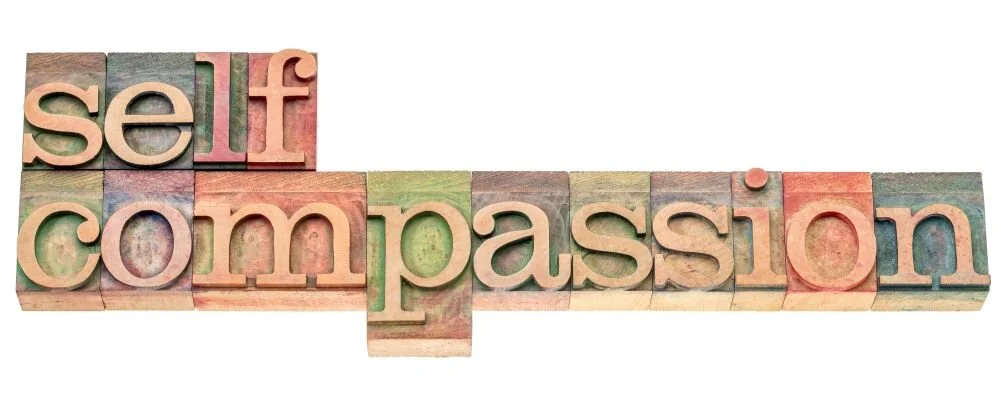Self-Compassion and a Year of Pandemic Living
As we move toward the one year anniversary of the start of the pandemic many are being reminded of what was interrupted and lost. Children are being reminded of canceled birthday parties, abrupt endings and fears of a looming virus. You too?
And given that the pandemic continues, many of us are experiencing a second round of birthdays and holidays without those people, places and rituals we were accustomed to. Adding in various forms of social distancing and the losses of loved ones leaves most people with a very narrow window of stress tolerance. We are tired and weary.
There are so many things that are simultaneously hard, out of our control and unresolved. And yet I notice many of the parents I work with holding themselves to old expectations about what they “should” be able to handle and how they “should” feel. That inner voice can be so harsh and unforgiving. Hearing the suffering in the voices of those I work with through coaching and therapy has drawn me back to the tenets and practices of self-compassion again and again.
What is Self Compassion?
Consider the last time a loved one went through something difficult.
How did you speak to them?
What acts of care and compassion did you offer?
Now think of the way you respond to your own struggles.
What do you hear that inner voice saying?
Is the grace and compassion flowing just as freely as when you comforted your friend? That is the idea behind self-compassion.
We are so quick to offer reassurance, encouragement and comfort to our loved ones. Applying that same care and compassion to ourselves can be a more difficult shift to make.
Kristin Neff and Christopher Germer describe it this way: “Self-compassion involves treating yourself the way you would treat a friend who is having a hard time—even if your friend blew it or is feeling inadequate, or is just facing a tough life challenge. The more complete definition involves three core elements that we bring to bear when we are in pain: self-kindness, common humanity (the recognition that everyone make mistakes and feels pain), and mindfulness.”
I can’t think of any experience that brings home the concept of “common humanity” than a global pandemic. Can you? While there are profound disparities in who has been most impacted by this virus and the changes within our communities, everyone has had to make significant adjustments to how they live, work and learn. Struggle and suffering have taken new depths this past year. It seems like the perfect time to interrupt the inner critic and adopt a posture of kindness and acceptance toward yourself.
Pandemics aside, self-compassion has many benefits that will serve you well in the future. Research has found that practicing self compassion can turn down your stress response system, leading to less anxiety and depression, greater well being and resilience in the face of failure (Emma Seppala PhD, The Scientific Benefits of Self-Compassion).
How Can You Begin to Practice Self Compassion?
Kristin Neff offers a number of activities and practices you can explore on her website self-compassion.org. I am sharing two of her activities here that I have found to be especially helpful for myself and others who may be new to exploring self compassion. Click on the heading to find them on her site.
Supportive Touch
Self compassion can be as simple as offering yourself supportive touch in a moment of upset or difficulty. While hugs and snuggles with our loved ones help promote the feel good hormone, oxytocin, so does a gentle touch of our own hands. Offering yourself nurturing touch may feel awkward at first but like all things, practice Place your hand over your heart or if you are able, place one over your belly and the other over your heart and take a few mindful breaths. You can practice this daily during stressful times and see what you notice.
Self Compassion Break
Think of a situation in your life that is difficult, that is causing you stress. Call the situation to mind, and see if you can actually feel the stress and emotional discomfort in your body.
Now, say to yourself:
1. This is a moment of suffering
That’s mindfulness. Other options include:
This hurts.
Ouch.
This is stress.
2. Suffering is a part of life
That’s common humanity. Other options include:
Other people feel this way.
I’m not alone.
We all struggle in our lives.
Now, put your hands over your heart, feel the warmth of your hands and the gentle touch of your hands on your chest. Or adopt the soothing touch you discovered felt right for you.
Say to yourself:
3. May I be kind to myself
You can also ask yourself, “What do I need to hear right now to express kindness to myself?” Is there a phrase that speaks to you in your particular situation, such as:
May I give myself the compassion that I need
May I learn to accept myself as I am
May I forgive myself
May I be strong.
May I be patient
This practice can be used any time of day or night, and will help you remember to evoke the three aspects of self-compassion when you need it most.
I hope these practices and ideas inspire and encourage you. If you feel like your family could use more support in recovering from the stress of this year or other changes, click here to learn more about my approach to Family Therapy.
Jeri Lea Kroll is a psychotherapist and parent coach specializing in early childhood, parenting, trauma, attachment across the lifespan and adoption using a lens informed by attachment theory and the relational neurosciences. She is also an adopted person and adoptive parent. She provides relationship-focused therapy and coaching to individuals, parents and families virtually from her office in Michigan.
Jeri Lea offers a free 30 minute discovery session to those considering parent coaching, child counseling or family therapy. You can request a discovery session HERE.



